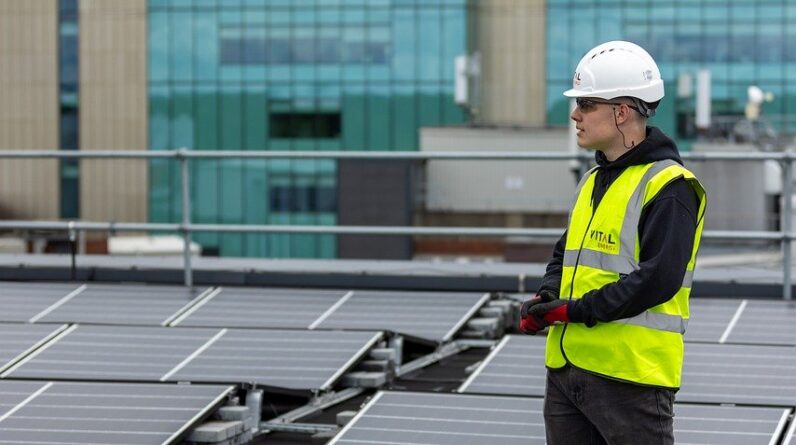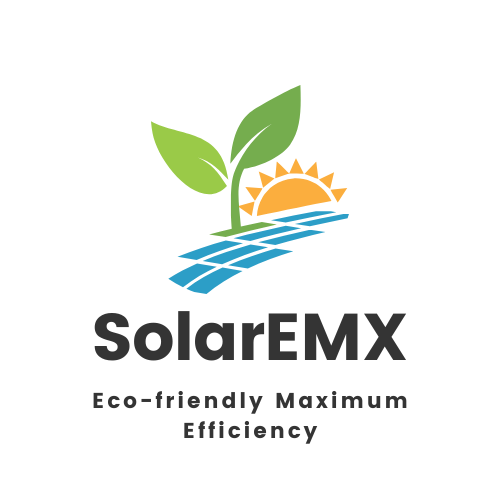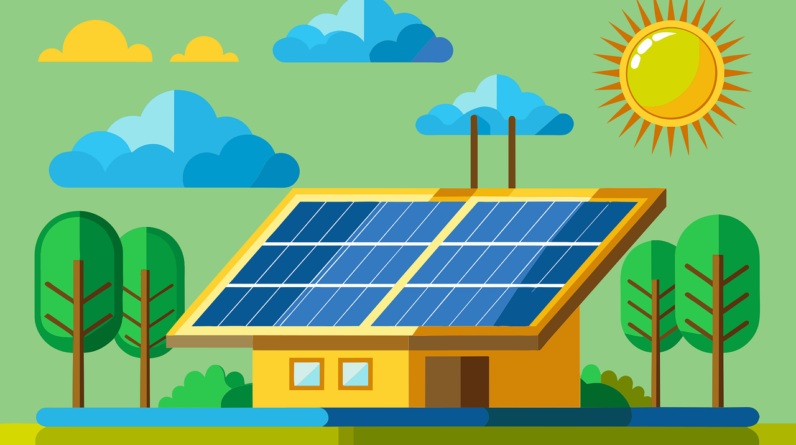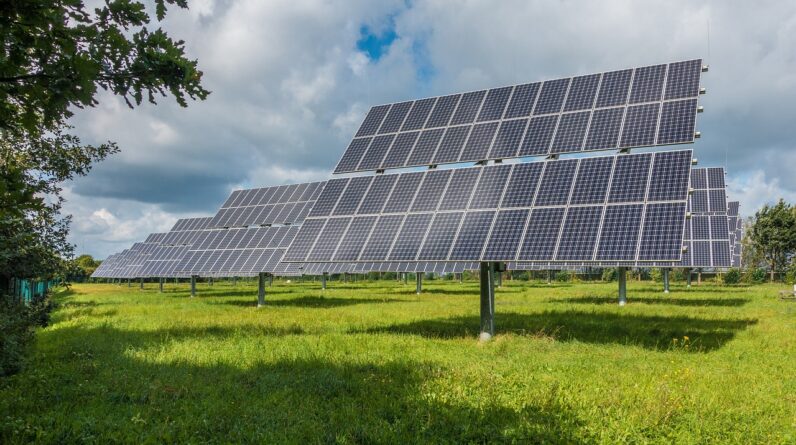
Discover why investing in solar energy can transform your business. From cutting costs to enhancing reputation, explore the sustainable benefits now!
Have you ever thought about how much energy your business consumes and how it impacts your bottom line? As the world shifts toward sustainability, many businesses are considering renewable energy sources, with solar energy standing out as a viable option. Let’s discuss why investing in solar energy can be a game-changer for your business.

Understanding Solar Energy
Solar energy is harnessed from the sun’s rays and converted into electricity or heat. This renewable energy source has gained traction over the years due to its environmental benefits, decreasing costs, and the potential for significant savings. If you’ve been contemplating making the switch, understanding the fundamentals is the first step.
What Makes Solar Energy Stand Out?
Solar energy is unique because it’s abundant and sustainable. Unlike fossil fuels, which are finite and release harmful emissions, solar power offers a clean, renewable alternative. As you consider solar energy, keep in mind the key benefits it brings:
- Environmental Benefits: Using solar power significantly reduces your carbon footprint.
- Long-Term Financial Savings: While the initial investment may be high, the long-term savings on energy bills can be substantial.
- Energy Independence: Investing in solar energy can provide your business with more control over its energy sources.
Financial Incentives for Solar Energy
When it comes to making a significant investment like solar, financial incentives can make a considerable difference in your decision-making process.
Tax Credits and Rebates
Many governments offer tax credits and rebates to encourage businesses to invest in solar energy systems. One notable incentive in the United States is the federal solar investment tax credit (ITC), which allows you to deduct a percentage of the cost of installing a solar energy system from your federal taxes.
Long-Term Savings and ROI
The long-term savings on energy costs can be impressive. On average, businesses can save thousands in operational costs over the life of their solar panels. Continuous advancements in solar technology mean improved efficiency and reduced costs. When you calculate the return on investment (ROI), it may prove that going solar is not just environmentally responsible but also financially sound.
| Factor | Traditional Energy Costs | Solar Energy Costs |
|---|---|---|
| Installation Costs | High initial investment | Decreasing costs |
| Monthly Bills | Constantly rising | Potentially zero |
| Maintenance Costs | Regular maintenance required | Minimal maintenance needed |
Enhancing Your Business’s Reputation
In today’s highly competitive market, reputation is everything. Your commitment to sustainability can set you apart from your competitors.
Attracting Eco-Conscious Consumers
More consumers are becoming environmentally conscious and prefer businesses that prioritize sustainability. By investing in solar energy, you demonstrate your commitment to eco-friendly practices, which can attract a loyal customer base.
Public Relations and Marketing Benefits
Integrating solar energy into your business strategy is not just beneficial for the environment—it’s also marketable. You can share your journey toward sustainability through various marketing channels, enhancing your brand’s image.
Improving Operational Efficiency
Investing in solar energy can also enhance your operational efficiency, providing numerous benefits that go beyond cost savings.
Reducing Energy Costs
As energy prices continue to fluctuate, solar energy provides a stable and predictable energy cost. You will be less subjected to market spikes in energy pricing, allowing for better budgeting and planning.
Reliability and Resilience
Solar power can offer greater energy reliability. In the event of grid outages, businesses with battery storage can keep operations running smoothly, maintaining productivity and customer satisfaction.
Environmentally Friendly Operations
By utilizing solar energy, you can set a green standard in your industry. Reducing greenhouse gas emissions and contributing to a healthier environment can foster goodwill among your customers and the community.

Solar Energy Technologies
Understanding the various technologies behind solar energy can empower your decision-making process.
Photovoltaics (PV)
PV solar panels convert sunlight directly into electricity using semiconductor materials. This technology is highly effective for various settings, from small businesses to large corporations.
Solar Thermal Systems
Solar thermal systems utilize the sun’s heat to produce hot water or steam for heating and cooling. This technology can be particularly effective for businesses in industries like hospitality, food processing, and manufacturing.
Concentrated Solar Power (CSP)
CSP systems use mirrors or lenses to concentrate sunlight onto a small area, producing heat that can generate electricity. Although more commonly applied in large-scale solar power plants, understanding how these systems work can deepen your appreciation for solar energy capabilities.
Choosing the Right Solar Energy System for Your Business
When you’re ready to invest in solar energy, it’s essential to choose the right system that fits your business needs.
Assessing Your Energy Needs
Before making any decisions, you should assess your energy needs and consumption patterns. Analyzing your historical energy usage can help determine the size and type of solar installation that will best serve your business goals.
Types of Solar Installations
There are various types of solar installations to consider:
- Rooftop Solar Panels: These are mounted on the roof of your business, utilizing otherwise unused space and providing direct energy for your operations.
- Ground-Mounted Solar Farms: If space permits, you may consider installing a solar farm on your property. These installations can generate significant energy.
- Community Solar Projects: If roof space or property is limited, participating in a community solar project allows you to share in the benefits of solar energy without physically installing panels.
Finding a Reliable Solar Provider
Your choice of solar provider can significantly impact the success of your solar energy investment. Look for experienced and trustworthy companies with a proven track record in system installation and customer service. Request quotes from multiple providers to ensure competitive pricing.

Overcoming Common Misconceptions about Solar Energy
When considering solar energy, it’s natural to encounter some common misconceptions. Addressing these can help inform your decision-making process.
Solar Energy is Too Expensive
While it’s true that the upfront costs of solar energy can be daunting, it’s important to focus on the long-term savings and incentives available. Many businesses find that the financial benefits far outweigh the initial investment.
Solar is Only Effective in Sunny Regions
While solar energy does thrive in sunny locations, advancements in technology have made it feasible in various climates. Even cloudy regions can harness solar power effectively, showcasing the versatility of solar systems.
Solar Panels are High Maintenance
In reality, solar panels require minimal maintenance. Routine inspections and occasional cleaning are generally all that’s needed to keep your system running efficiently. Many solar systems come with warranties that can ease your concerns.
Government Policies and Support
Different government policies can influence the feasibility and desirability of investing in solar energy. Understanding these can help you optimize your investment.
Federal and State Regulations
Familiarize yourself with regulations in your area to ensure compliance and to maximize any available incentives. Consider consulting with a local expert who understands the specific policies impacting your business.
Incentives and Grants
In addition to tax credits, many states offer grants and financial incentives to encourage businesses to adopt solar technology. Investigating these opportunities can lower your costs and enhance your ROI.

The Future of Solar Energy for Businesses
As technology continues to evolve, so does the potential for solar energy in the business sector.
Technological Advancements
The solar industry is characterized by continuous improvements in efficiency and storage capabilities. Innovations in battery technology promise to enhance solar energy usage, allowing businesses to store excess energy for later use.
Renewable Energy Goals
Many organizations are setting ambitious renewable energy goals, reflecting their commitment to sustainability. By investing in solar energy, your business can be part of this global movement towards greener practices.
Solar Energy and Corporate Responsibility
Integrating solar energy into your business model not only aligns with corporate social responsibility (CSR) goals but can also enhance employee morale, attracting talent that values sustainability.
Conclusion
You might find that investing in solar energy is not just about being eco-friendly or keeping up with trends; it’s a strategic move that can significantly enhance your business’s financial health and reputation. Considering the long-term benefits, creating a greener footprint, and taking advantage of available incentives, solar energy can indeed provide the edge your business needs in today’s competitive market.
Whether you’re just starting to research or ready to take the plunge into solar energy, know that it’s a worthwhile investment that promises to pay off in more ways than one. Complete your journey toward a more sustainable and efficient future today.






